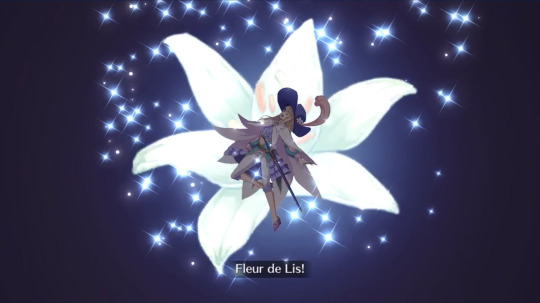#d’eon
Explore tagged Tumblr posts
Text

Context:



13 notes
·
View notes
Text
I wish I could draw people well. Because if I could I would so do the Barbie and Ken mugshot photo but with Justine and Eliza (no idea which way round it would be but now that I think about Justine and Shuncucker would work even better Justine as Barbie and Shuncucker as Ken)
Or D’eon
Or Sandwich
You know this would work with the entire Faction Paradox cast like they are all completely unhinged (compared to the rest Sandwich is the most normal. And what does that say when a member of a Pseudo-Satanic Sex Cult seems like the normal sane one Sandwich would definitely be Barbie and the rest would be Ken)
7 notes
·
View notes
Note
Yeah, I think D’Eon using the male gender for “has filled me” does make perfect sense for the narrative she’s crafting here. Reason and spirituality are the essential feminine traits to d’Eon, so the empty vessel that receives these boons is male, before being filled up and becoming a fully realized Christian woman, etc. D’Eon was a masterful writer and knew exactly what she was doing when choosing these genders; I doubt a single one of them isn’t deliberate.
Hi!
I really enjoy your posts about d'Eon; she's so fascinating. I'm definitely not an expert on her, but I'm very interested! One article I read said that, in her unfinished memoirs, she used both male and female pronouns. Is this a) even true, given some of the clearly wrong historical writing you've cited before, and b) if it is true, what do you think about it?
So I don't speak French. D'Eon's unfinished memoirs were originally written in French and I'm working with an English translation. This makes any discussion of gendered language in her memoirs a bit more difficult as there are words that are gendered in French but gender neutral in English and vice versa. Helpfully the translation by Roland A. Champagne, Nina Ekstein and Gary Kates notes when the masculine or feminine form is being used. However I'm still answering this question based on a translation not d'Eon's original words.
D'Eon's memoirs are written in first person so the majority of the pronouns she uses for herself are first person pronouns (I, me, my, mine).
Other characters use either he/him or she/her pronouns for d'Eon but this reflects that characters perspective not d'Eon's personal pronouns. For example in a scene set in Russia the Comte de Vorontsov confronts d'Eon about her double life, using feminine pronouns for Mademoiselle d'Eon and masculine pronouns for Captain d'Eon:
This young lady remarked to Madame Vorontsov and to my niece the Princess Asthoff that she remembers very well that Mademoiselle d'Eon has a small wine-colored birthmark on her left cheek near her ear, that at the convent in Meaux she wore gold-drop earrings, and that if Captain d'Eon has this wine-colored birthmark on his left cheek and that if he has pierced ears, you can be sure that this is the Demoiselle d'Eon whom I knew in the convent. (p20)
D'Eon pretty consistently seems to use feminine language for herself when speaking in the present tense. She uses the words "woman", "girl", "maiden", "daughter", the titles "mademoiselle" and "chevalière" and "she/her" pronouns at points when she slips into third person.
However when talking in the past tense she sometimes describes herself in the masculine. She was a "man" but is now a "woman". She will sometime talk about her past self in third person referring to "him" as her "brother". After Mademoiselle Bertin dresses d'Eon in woman's clothes for the first time d'Eon says to her:
You have killed my brother the dragoon. That leaves me with a heavy heart. (p61)
D'Eon's describes her transition as a death and rebirth. A few weeks before d'Eon was to be presented at the Court of Versailles as a woman she returns home to Tonnerre. Still wearing men's clothes she gets into an argument with her mother who believes she should start wearing women's clothes immediately. But d'Eon is reluctant, avoiding it. At one point in the argument d'Eon tells her mother she must resign herself to "the imminent death of your pitiful dragoon" as "he" only has a few weeks left in men's clothes. Their argument ends with the following passage:
In tears, my mother said to me: "You are still my dear daughter sitting in the darkness and the shadow of death. But you will be reborn, my daughter, without fear or reproach, to live and die peacefully by your mother, who loves and will always cherish you. For your salvation and our mutual happiness, I have long prayed for the misfortune that befalls you." She wiped her tears against my face and returned to her room. I hid my face under the covers in order not to see or hear anything. I was even troubled by my own presence in he darkness of night. (p41)
While d'Eon describes the loss of her "brother" the dragoon as painful she ultimately sees it as something that is necessary and positive:
Mademoiselle d'Eon has only one more step to take to bury her brother the captain of the dragoons with the full honors of War ... Tomorrow without fail I will inform Mademoiselle Bertin of my return to Paris and tell her to bring with her feathered aides-de-camp to deplume me and to sew the dragoon's skin to that of a girl who is worn out from bitter disappointment with her own skin. This girl has the greatest need of her help to be trimmed, readied, and fitted out by her skillful hand in order that I may walk with unworried assurance along the narrow path of virtue, as is befitting a Christian maiden (p56)
The death of the dragoon captain gives life to the Christian maiden:
In my regiment I sought only the rough and tumble. But in my convent I find only remedies and healing. Thus by a natural tendency I find it impossible to reconcile Mademoiselle d'Eon with her brother, the dragoon captain. The brother is imperfect, the sister perfect. How can one reconcile between the imperfect and the perfect? (p72)
Her life as Geneviève d’Eon brings her joy:
At present I am living in profound peace; and my joy is so great that I praise God in three languages so that a greater number of people may partake of the happiness of the angels in this life while awaiting the crown of ordinary martyrs, Nunc Genofeva d'Eon est nomen meum; quam suave et dulce est laetitia mea! [My name is now Geneviève d’Eon; how delightful and how sweet is my joy!] (p87)
However she doesn't always refer to her pre-transition self in the masculine. D'Eon presents herself as a woman who was raised as a boy by her parents: "I had been educated as a boy, and I dressed as one." (p7) She describes her past self as a "foolish girl who was tricked to go along like a foolish ewe." (p3)
One interesting example of d'Eon's use of gendered language is her invention of the word "demoiseau". One of the translators Roland A. Champagne describes it as a "masculine version of demoiselle" and explains "We translated demoiseau as "pretty boy" in order to capture the lexical proximity of demoiseau to damoiseau ("fop")." Champagne concludes that "d'Éon constructed in a neutral gender the demoiseau to live as a masculine woman beyond the codes of the Ancien Regime." (Decoding "The Maiden of Tonnerre": Translating Gender from the Eighteenth Century)
Champagne is correct to say that d'Eon lived as a "masculine woman" but I think he might be making too much of this one word considering the context. The word "demoiseau" comes from the following exchange between d'Eon and Bertin:
Mademoiselle d'Eon. Alas, at court everything is beautiful. To please the court, does a former dragoon captain have to become a pretty boy [demoiseau]? Mademoiselle Bertin. Yes, absolutely, when the so-called "boy" is discovered to be in fact a girl by the systems of justice both in England and in France. (p64)
So I don't think d'Eon necessarily identified as a "demoiseau" but perhaps I'm missing something in translation.
The part I struggle with the most is words that are gender neutral in English but gendered in French. Without being familiar with French it's difficult for me to understand what the use of masculine and feminine forms of words means in context. Take the following passage for example:
Neither my body nor my mind was worn out from studying when my father took(m) me to Paris at the age of thirteen. At that point, I knew only how to read and write, and not well at that. I, however, fell into the hands(f) of my uncle and aunt who made(m) me feel ashamed(m) of my ignorance and who motivated me to study. Furthermore, they alerted and warned me that if I revealed the truth of my sex I would be locked away(f) in a convent forever. (p4)
In "my father took(f) me" took is masculine. Does that mean that d'Eon is masculine, her father is masculine or the act of taking is masculine? What about "made(m) me feel ashamed(m) of my ignorance" is d'Eon masculine or is her shame masculine? If her sex if revealed she will be "locked away(f) in a convent". Why is the word away feminine?
One thing that I particularly found interesting is that the pronoun "me" is sometimes marked as feminine, sometimes masculine, but most often not marked as either. So we have:
The Revolution made me(m) so rich that today I do not have the means to buy ink or paper.
And then just a few paragraphs later:
I would just as soon suffer childbirth as to be doing this painful work of writing, which I have begun because of the destitution to which the Revolution has reduced me(f).
Then a few paragraphs latter:
I am no longer a disciple of this world since my wonderful conversion, which separated me(f) completely from the body of the dragoons and from the sin of my uniform and which finally stripped away the old man in order to make of me a totally new being before Our Lord, in the eyes of men, in front of the Queen's ladies-in-waiting as well as the Daughters of Holy Mary, and in the hopes of the fortune reserved for me in heaven. The knowledge of that fortune has filled me(m) with complete wisdom and spiritual intelligence so that I might bring to fruition every good action and so that I might behave as befits a Christian woman not only before the world but also before the Lord, since during my novitiate I was washed(f), probed(f), tested(f), corrected(f), corroborated(f), strengthened(f), and rooted(f) in every way, which I endured, in complete patience and spiritual tranquility, the Lord having erased my obligations, which consisted of military orders, orders contrary to my spirit, and which He completely abolished and replaced with my new obligation to live and die in the essential purity of my innocent dress, no longer thinking of those things here below but only about those on high. (p136-137)
The switching back and forth between "me(m)" and "me(f)" is interesting but I honestly have no idea what it means.
If I ignore all the little "f"s and "m"s the gendered language seems pretty clear and consistent. D'Eon is a woman who was raised as a boy. She is feminine in the present tense but sometimes masculine in the past tense. But I can't just ignore the fact that I'm reading a translation. That would not be a honest analysis of her memoirs. I'd love if someone who is familiar with French went through her writing and really analysed her use of gendered language. I'm unfortunately restricted by the limits of working with a translation.
63 notes
·
View notes
Text
Luisa: The Prince and I are getting closer! The other day, he gave me half of his sandwich.
Conor, whispering to Kel: I mistook her for a servant.
#cassandra clare#incorrect sword catcher quotes#sword catcher#sword catcher incorrect quotes#tcoc#the chronicles of castellane#kel saren#conor aurelian#luisa d’eon#source: sanders sides
17 notes
·
View notes
Text

Bless This Family By Felix D’eon
8 notes
·
View notes
Text

The fact we never got D’eon’s Agartha outfit as a Costume Dress just goes to show how much FGO despises this character
#no skill strengthenings#the no upgrade is horrible#i’m so sorry d’eon but i can’t justify ever using you#and they won’t even give you the cute agartha outfit
11 notes
·
View notes
Text
My last minute Ragpicker King predictions
The assassin who killed Luisa is Cas, Kel’s friend from the orphanage
Merren and Jerrod romance
Elsabet is the mystery lady plotting with Artal in the teaser we got
Ciprian is going to die
Since Lin is pretending to be the goddess she doesn’t have to wear the Ashkar colors anymore and it’s going to be a big moment for her
Adreyen is actual Asher Benezar, the Maharam’s exiled son, and is going to teach Lin forbidden magic like bone conjuring
Mariam will die(if not in this book at some point in the series)
Sarthe threatens war with Castellane at least once
Conor’s mental health declines(free space)
Artal will be arrested by the end of book rather for something he did or because he was framed
Petrov’s store is a source stone containing some of the Goddess’ magic/power
Lin isn’t actually the goddess returned(this is mostly denial because I hate that trope)
Josit will return from the gold roads and cause a bunch of problems for Lin on accident
Antonetta will discover/figure out Kel’s a sword catcher and what that means
#sword catcher#ragpicker king#sword catcher spoilers#tcoc#the chronicles of castellane#chronicles of castellane#kel saren#kel anjuman#conor aurelian#lin caster#merren asper#jerrod belmerci#asher benezar#mariam duhary#antonetta alleyne#luisa d’eon#cas sword catcher#artal gremont#josit caster#ciprian carbol#andreyen morettus
5 notes
·
View notes
Text
So, I just spotted a post on Tumblr about Alexandr Andreevich Alexandrov (Nadezhda Durova) and remembered that I had made the mistake of misgendering the man in the above post.
Of course, it wasn’t done maliciously, but I do need to acknowledge that mistake. I’m not perfect.
I’m a Russian and my country is extra dismissive and/or oblivious about queer people in the present, let alone in history, so Alexandrov’s story for us is presented more like a Russian Mulan than a trans man, even though clearly Alexandrov lived under his male identity and went by male pronouns.
I’m truly sorry for this mistake and I’m going to correct the tidbit mentioning Alexandrov to reflect his actual pronouns.
P. S. I also referred to Chevaliére d’Éon with he/him pronouns in my Banner of the Maid review, even though she went by Genevieve and used she/her pronouns during the later years of her life.
However, I did that because I was referring to the d’Éon in the game, who is portrayed as a man, not to the real chevaliére. Hopefully that clarifies things.
#nadezhda durova#alexander alexandrov#russian history#russian queer history#queer history#napoleonic era#banner of the maid#chevaliere d’eon#napoleon’s russian campaign#russian campaign 1812#trans#queer
9 notes
·
View notes
Text
obviously I have mixed feelings about Chevalier d’Eon and their views on religion but hm. the concept of transitioning as an act of divinity. there’s something there even if it’s not what d’Eon thinks it is
10 notes
·
View notes
Text
I love you, Felix de’on <3










#felix deon#Felix de’on#felix d’eon#literally nobody could agree where the stupid ‘ goes#sorryyyyyy I’m a sillie little gay man with my sillie little interests#art#vintage art#vintage#gay#lesbian#bisexual#trans#gay art#lgbt#lgbt positivity
45 notes
·
View notes
Text
Tell me less about how we don’t know how they would identify today (a statement that can be made about literally every historical figure) and more about how they expressed themselves in their lifetime.
#I think this is one of the big issues with how we talk about queer history#like yeah of course the culture d’Eon lived in influenced her understanding of gender#sure if she was a millennial she might use different words to describe herself#but isn’t the point of studying history to learn about how people lived in the past#not how they might have theoretically lived if they were alive now
58 notes
·
View notes
Text
Luisa: That woman is looking at me with judgment.
Conor: Liorada? No, she’s not, that’s just her face.
Luisa: You look at me the same way. Judgy face.
#cassandra clare#incorrect sword catcher quotes#sword catcher#sword catcher incorrect quotes#tcoc#the chronicles of castellane#conor aurelian#luisa d’eon#liorada alleyne#source: the shadowhunter chronicles#source: the dark artifices#source: lady midnight
6 notes
·
View notes
Text
Franklin (Apple TV): a poignant reminder
Franklin is based on the 2005 book A Great Improvisation: Franklin, France, and the Birth of America by Stacy Schiff, which I would also recommend to history lovers as I would recommend La Chevaliere d’Eon’s papers. Franklin is out on Apple TV now and even if you aren’t a history buff it rounds itself out as a compelling story about power, deception, identity and family.

View On WordPress
#meerawrites#wordpress#18th century#america250#american history#american revolution#analysis#benjamin franklin#Chevaliere d’eon#Edd Stoppard#eddie marsan#franklin#franklin (apple tv)#franklin 2024#french history#historical fiction#history#john adams#John Jay#Marquis de Lafayette#media#media analysis#media critique#Micheal Douglas#Noah Jupe#opinion piece#period drama#period dramas#queer history#media criticism
6 notes
·
View notes
Text
I’d like an event where d’Eon’s role isn’t “cross dressing maid”
#they deserve so much more#it’s played off OK here but it’s still just#even when it’s not their important role / point it’s still used and still boring#fgo d’eon#chevalier d’eon#fgo criticism#kiwiki plays fate#explosion at akihabara#Kiwiki Speaks
17 notes
·
View notes
Text

So strange that this is my first time seeing Chevalier d’Eon’s NP. First time using them in a fight that matters come to think of it, i like how they NP and the opponent’s like

“Flowers?”

“DAHHHHHH FUCK”
7 notes
·
View notes